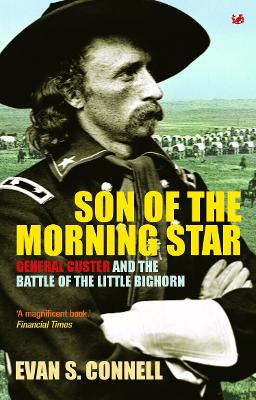Picador Books
2 total works
On a scorching June Sunday in 1876, thousands of Indian warriors - Lakota Sioux, Cheyenne and Arapaho - converged on a grassy ridge above the valley of Montana's Little Bighorn River. On the ridge five companies of United States cavalry - 262 soldiers, comprising officers and troopers - fought desperately but hopelessly. When the guns fell silent, no soldier - including their commanding officer, Lt Col. George Armstrong Custer - had survived. Custer's Last Stand is among the most enduring events in American history - 130 years after the fact, books continue to be written and people continue to argue about even the most basic details surrounding the Little Bighorn. Evan S. Connell, whom Joyce Carol Oates has described as 'one of our most interesting and intelligent American writers', wrote what continues to be the most reliable - and compulsively readable - account of the subject. Connell makes good use of his research and novelist's eye for story and detail to re-create the heroism, foolishness and savagery of this crucial chapter in the history of the West.
Before Betty Friedan wrote "The Feminine Mystique" there was "Mrs. Bridge," an inspired novel set in the years around World War II that testified to the sapping ennui of an unexamined suburban life. India Bridge, the title character, has three children and a meticulous workaholic husband. She defends her dainty, untouched guest towels from son Douglas, who has the gall to dry his hands on one, and earnestly attempts to control her daughters with pronouncements such as "Now see here, young lady ... in the morning one doesn't wear earrings that dangle." Though her life is increasingly filled with leisure and plenty, she can't shuffle off vague feelings of dissatisfaction, confusion, and futility. Evan S. Connell, who also wrote the twinned novel "Mr. Bridge," builds a world with tiny brushstrokes and short, telling vignettes.

